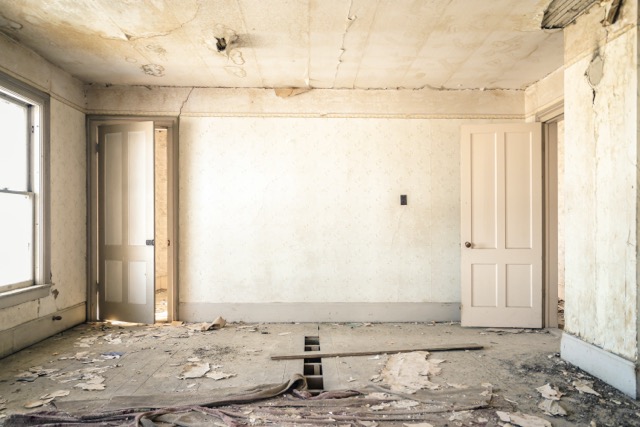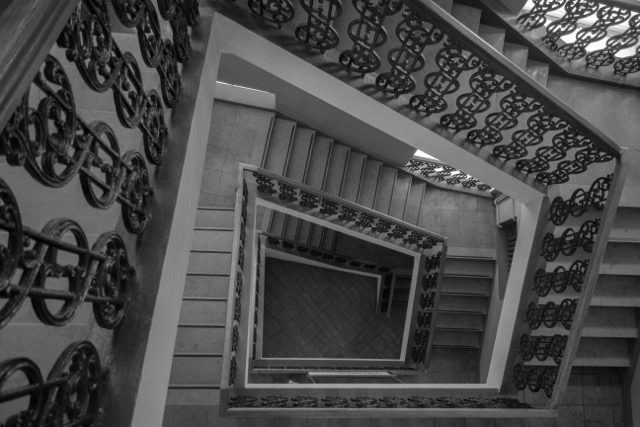So, you’ve finally decided to fulfill a lifelong dream and buy your own home… how exciting! You are ready to fulfill your dream of having a place to call your own as First Time Home Buyers.
Buying a home is one of the biggest emotional and financial decisions you’ll ever make. Prepare by learning about the process of homebuying and the responsibilities of homeownership. The differences between renting and buying a home are vast, and there’s a long list of pros and cons for both options. And, remember — there is no one best decision for everyone. Before moving forward, though, here are some questions to consider.
Do you have the necessary financial management skills?
How financially stable are you?
Are you ready to take on the responsibility of all the costs involved in homeownership, including mortgage payments, repairs, and maintenance?
Are you able to devote the time required for home maintenance?
Home Renting vs. First Time Home Buyers
There are pros and cons for both renting and buying a home. Everyone must make his or her own best decision. Buying a home is not for everyone. Take a moment to think through the advantages and disadvantages of both owning and renting, and make a list. Use our home renting vs. buying calculator to help you.
Read over your completed worksheet and then think carefully. Are the advantages of owning your home really bigger than the advantages of renting? Are the disadvantages of owning your own home really smaller than the disadvantages of renting?
If homeownership is for you, you must be both financially and emotionally ready. Buying a home isn’t only about money. You should listen to your heart… and take an honest look at your lifestyle.
Are You Financially Ready To Own A Home?
How can you know if you are financially ready to become a homeowner?
Start figuring out your financial readiness by evaluating your present household budget. How much are you spending each month? Knowing exactly how much, will give you a better idea about whether you can afford to become a homeowner.
Do you know how much debt you are carrying? You need this information to figure out whether you are financially ready for homeownership. If you decide to buy a home, mortgage lenders will ask for this information.
How Much Can You Afford?
Before you begin shopping for a home, it’s important to know how much you can afford to spend on homeownership. You will want to plan ahead for the various expenses related to homeownership. In addition to purchasing the home, other significant expenses will include heating, property taxes, home maintenance and renovation as required.
Two simple rules can help you figure out how much you can realistically pay for a home. You must understand these rules to understand if you will be able to get a mortgage.
Home Affordability Rule #1
Your monthly housing costs shouldn’t be more than 32% of your gross monthly income. Housing costs include your monthly mortgage payments (principal and interest), property taxes and heating expenses. This is known as PITH for short — Principal, Interest, Taxes, and Heating.
If you are thinking of buying a condominium or leasehold tenure:
For a condominium, PITH also includes half of the monthly condominium fees.
For leasehold tenure, PITH also includes the entire annual site lease.
Lenders add up your housing costs and figure out what percentage they are of your gross monthly income. This figure is called your Gross Debt Service (GDS) ratio. To be considered for a mortgage, your GDS must be 32% or less of your gross household monthly income.
Affordability Rule #2
Additionally, your entire monthly debt load should not be more than 40% of your gross monthly income. Your entire monthly debt load includes your housing costs (PITH) plus all your other debt payments (car loans or leases, credit card payments, lines of credit payments, etc.). You have calculated these on the Monthly Debt Payments form. This figure is called your Total Debt Service (TDS) ratio.
Your Maximum House Price
The maximum home price that you can realistically afford depends on a number of factors. The most important factors are your household gross monthly income, your down payment and the mortgage interest rate. For many people, the hardest part of buying a home — especially their first one — is saving the necessary down payment.
Note: For CMHC-insured mortgage loans, the maximum purchase price or as-improved property value must be below $1,000,000, when the loan-to-value ratio is greater than 80%.
Calculate Your Maximum House Price
Use the Mortgage Affordability Calculator in the Mortgage Tools section to figure out the maximum home price you can afford, the maximum mortgage amount you can borrow, and your monthly mortgage payments (including principal and interest).
Mortgage Loan Insurance
Mortgage loan insurance helps protect lenders against mortgage default, and enables consumers to purchase homes with a minimum down payment of 5% — with interest rates comparable to those with a 20% down payment.
The CMHC Mortgage Loan Insurance premium is calculated as a percentage of the loan and is based on the size of your down payment. The higher the percentage of the total house price/value that you borrow, the higher percentage you will pay in insurance premiums. The cost for Mortgage Loan Insurance premiums is usually offset by the savings you get from lower interest rates.
Note: The amortization cannot exceed 25 years for mortgage loan-to-value ratios higher than 80%.
Do Your Calculations Look Encouraging?
What is your current financial situation?
You may need to step back and re-evaluate your house goals and dreams. Consider the following which may improve your housing outlook for the long run:
Pay off some loans first.
Save for a larger down payment.
Take another look at your current household budget to see where you can spend less. The money you save can go towards a larger down payment.
Lower your home price — remember that your first home is not necessarily your dream home.
Before approving a mortgage, lenders will want to see how well you have paid your debts and bills in the past. To do this, they consider your credit history (credit report) from a credit bureau. This tells them about your financial past and how you have used credit.
Before looking for a mortgage lender, get a copy of your own credit history. There are two main credit-reporting agencies: Equifax Canada and TransUnion Canada. You can contact either one of them to get a copy of your credit report. There is often a fee for this service.
Once you receive your credit report, examine it to make sure the information is complete and accurate.
If You Have No Credit History
If you have no credit history, it is important to start building one by, for example, applying for a standard credit card with good interest rates and terms, making small purchases, and paying them as soon as the bill comes in.
Poor credit? lenders might not be able to give you a mortgage loan. You will need to re-establish a good credit history by making debt payments regularly and on time. Most unfavourable credit information (including bankruptcy) drops off your credit file after seven years.
Mortgage Pre-Approval
It’s a very good idea to get a pre-approved mortgage before you start shopping. Many REALTORs® will ask if you’ve been approved. A lender will look at your finances and figure the amount of mortgage you can afford. Then the lender will give you a written confirmation, or certificate, for a fixed interest rate. This confirmation will be good for a specific period of time. A pre-approved mortgage is not a guarantee of being approved for the mortgage loan.
Even if you haven’t found the home you want to buy, having a pre-approved mortgage amount will help keep a good price range in mind.
Bring these with you the first time you meet with your mortgage broker:
Your personal information, including identification such as your driver’s license.
Details on your job, including confirmation of salary in the form of a letter from your employer.
All your sources of income.
Information and details on all bank accounts, loans and other debts.
Proof of financial assets.
Source and amount of down payment and deposit.
Proof of source of funds to cover the closing costs (these are usually between 1.5% of the purchase price).
Make Your Mortgage Work for You
We will offer you several choices to help find you the mortgage that best matches your needs. Here are some of the most common:
Mortgage Amortization Period
Amortization refers to the length of time you choose to pay off your mortgage. Mortgages typically come in 25 amortization periods, but can be as short as 15 years. Usually, the longer the amortization, the smaller the monthly payments. However, the longer the amortization, the higher the interest costs. Total interest costs can be reduced by making additional (lump sum) payments when possible.
Payment Schedule
You have the option of repaying your mortgage every month, twice a month, every two weeks or every week. You can also choose to accelerate your payments. This usually means one extra monthly payment per year.
Mortgage Interest Rate Type
You will have to choose between “fixed”, “variable” and “protected (or capped) variable”. A fixed rate will not change for the term of the mortgage. This type carries a slightly higher rate but provides the peace of mind associated with knowing that interest costs will remain the same.
With a variable rate, the interest rate you pay will fluctuate with the rate of the market. Usually, this will not modify the overall amount of your mortgage payment, but rather change the portion of your monthly payment that goes towards interest costs or paying your mortgage (principal repayment). If interest rates go down, you end up repaying your mortgage faster. If they go up, more of the payment will go towards the interest and less towards repaying the mortgage. This option means you may have to be prepared to accept some risk and uncertainty.
A protected (or capped) variable rate is a mortgage with a variable interest rate that has a maximum rate determined in advance. Even if the market rate goes above the determined maximum rate, you will only have to pay up to that maximum.
Use the Mortgage Payment Calculator to find how much and how often your payment will be. Compare options and find one that’s right for you.
Mortgage Term
The term of a mortgage is the length of time for which options are chosen and agreed upon, such as the interest rate. It can be as little as six months or as long as five years or more. When the term is up, you have the ability to renegotiate your mortgage at the interest rate of that time and choose the same or different options.
An open mortgage allows you to pay off your mortgage in part or in full at any time without any penalties. You may also choose, at any time, to renegotiate the mortgage. This option provides more flexibility but comes with a higher interest rate. An open mortgage can be a good choice if you plan to sell your home in the near future or to make large additional payments.
A closed mortgage usually carries a lower interest rate but doesn’t offer the flexibility of an open mortgage. However, most lenders allow homeowners to make additional payments of a determined maximum amount without penalty. Typically, most people will select a closed mortgage.
Property Down Payment
A down payment is the part of the home price that does not come from the mortgage loan. The down payment comes from your own money. You can buy your home with a minimum down payment of 5%, if you have mortgage loan insurance from CMHC. You need a down payment of at least 20% for a conventional mortgage.
Property Deposit
The deposit is paid when you make an Offer to Purchase to show that you are a serious buyer. The deposit will form part of your down payment with the remainder owing at time of closing. If for some reason you back out of the deal without having covered yourself with purchase conditions, such as financing, home inspection, etc., your deposit may not be refundable and you may be sued for damages. The size of the deposit varies. Your realtor or lawyer / notary can help you decide on the amount.
Home Inspection Fee
We recommend that you make a home inspection a condition of your Offer to Purchase. A home inspection is done by a qualified home inspector to provide you with information on the condition of the home. It generally costs between $350-$500, depending on the age, size and complexity of the house and the condition that it is in. For example, it may be more costly to inspect a large, older, home, or one in relatively poor condition, or that has many pre-existing problems or concerns.
Title Insurance
Your lender, lawyer, or notary may suggest that you get title insurance. This will cover loss caused by defects of title to the property.
Land Registration Fees
Land registration fees are sometimes called Land Transfer Tax, Deed Registration Fee, Tariff or Property Purchases Tax. In some provinces and territories, you may have to pay this provincial or municipal charge when you close the sale. The cost is a percentage of the property’s purchase price. Check on the internet or with your lawyer (or notary) or other team member to find out about the current rates. These fees can cost a few thousand dollars.






